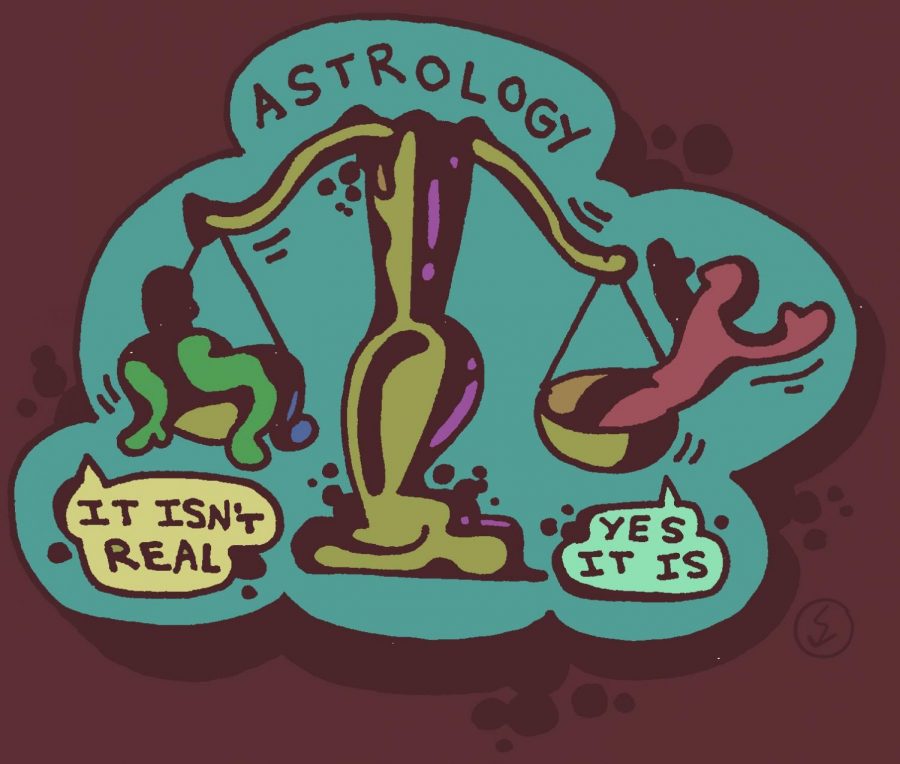If you have nothing nice to say about astrology, say nothing at all
February 25, 2021
When the word “astrology” is mentioned, it is often met with exasperated groans and dismissive eye rolls and sometimes even a, “Wait, you actually believe in that stuff?”
It’s treated as a hoax, something that’s silly or even stupid to believe in. So, what about it? Maybe it is — but who cares?
Astrology is the study of using the placement of stars, moons and planets to determine truths about people and the universe.
Commonly, astrology is practiced by using a person’s date of birth, location of birth and time of birth to pinpoint the exact alignment of the planets when people were born to retrieve a person’s birth or natal chart. It consists of different star signs that each carry a distinct meaning about the person.
Beyond just being able to explain certain traits a person has, astrology is often used to predict the future, albeit, generally in vague ways.
However, the point isn’t whether astrology is real or not. The point is that people need to respect each other’s beliefs, even if they don’t share or understand them.
As long as a person’s views aren’t advocating for harm to others and their practices aren’t breaking any laws, what does it really matter what they believe in?
According to a 2018 report by the Pew Research Center, about 29% of American adults believe in astrology, which is almost a third of the population.
Clearly, there is a significant number of people who believe in astrology, at least to some extent. When people then tell these believers “This isn’t real,” or, “You’re crazy for believing in this,” it’s a slight against nearly 30% of the country.
Each person has their own truth and experiences that have led them there. Even if astrology doesn’t work for one, it may work for another.
Furthermore, astrology is a form of spirituality.
The United States has laws about religious freedom and it’s probably safe to say that the average American agrees that people should be able to practice the religion of their choosing without persecution.
If it’s socially unacceptable to go around telling Christians that God isn’t real, then it shouldn’t be socially acceptable to tell astrologists that their practice isn’t real either.
It seems that non-monotheistic belief systems — like astrology and other “New Age” forms of spirituality — don’t get the same social protections of religious freedom that religions like Protestantism or Evangelism, for example, do.
It’s important to allow people to connect with their own spirituality in their own way. Whether that’s through silent prayer to a single God, runes done to honor nature or just reading a daily horoscope, it isn’t anybody’s business what another person does with their own spirituality.
Astrology is just one example of how people need to learn to respect other people’s values. Not everyone on this planet is going to feel the same way about things, and that’s okay.
After all, everyone’s taught the same “golden rule” in elementary school: if you have nothing nice to say to someone, don’t say anything at all.








